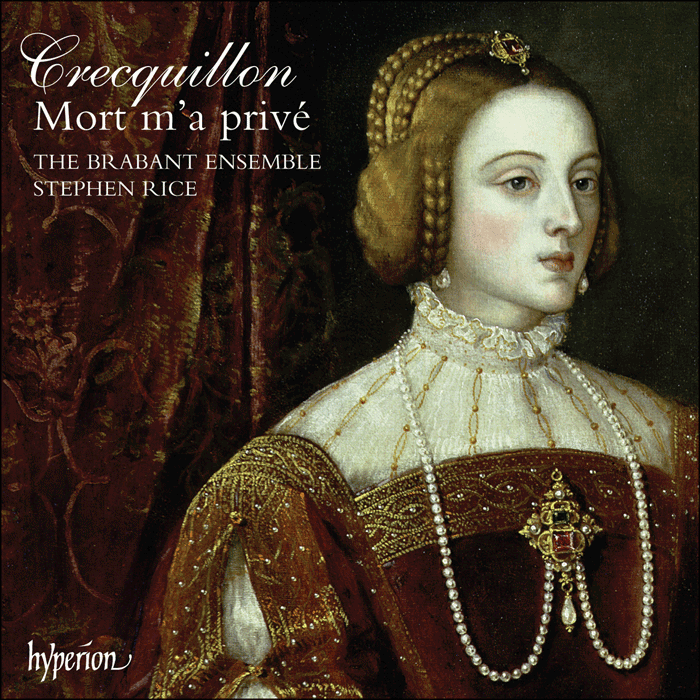Crecquillon: Missa Mort m'a privé & other sacred music
The Brabant Ensemble, Stephen Rice (conductor)
CDA67596
On 1 May 1539 Isabella—wife of Charles V, the Holy Roman Emperor and undisputed king of much of Europe—died in childbirth. Charles’s grief was profound and can be keenly felt even today thanks to his commissions in memory of his beloved wife. For art Charles turned to Titian, the leading painter of the day, requesting a number of posthumous portraits, including the famous La Gloria which depicts the imperial couple worshipping the Trinity and longing for reconciliation after death. Thomas Crecquillon (about whom virtually nothing is known outside the period of his imperial service) was engaged to create a fitting musical legacy.
‘Mort m’a privé’ (‘Death has deprived me’) is an unusually personal text, possibly by the emperor himself, and received two musical settings, one for Charles and one for Isabella. The sublime Mass takes elements from both motets and weaves them into the musical perfection of one-ness for which Charles so yearned.
Crecquillon’s versatility as a composer (one could be forgiven for imagining him a somewhat morbid figure—Praemia pro validis and Caesaris auspiciis both mark the deaths of imperial generals, while Cur Fernande pater laments the fatal poisoning of a different Isabella, Charles’s neice, the Queen of Poland) is demonstrated by the celebratory Congratulamini mihi (‘Rejoice with me’) that concludes the programme: the Lord is sighted, risen from the tomb, and Charles shall have his Isabella once more.
The Brabant Ensemble (taking its name from the area of what is now northern Belgium/southern Holland from which so many great sixteenth-century composers originated) was formed by performing musicologist Stephen Rice in 1998 to explore the neglected repertory of sacred music from 1520 to 1560. Comprising fifteen young professional singers, this is the group’s first recording for Hyperion. A 2004 release of music by Clemens non Papa (on the Signum label) won considerable acclaim, and promises us a genuinely new specialist early music choir.

